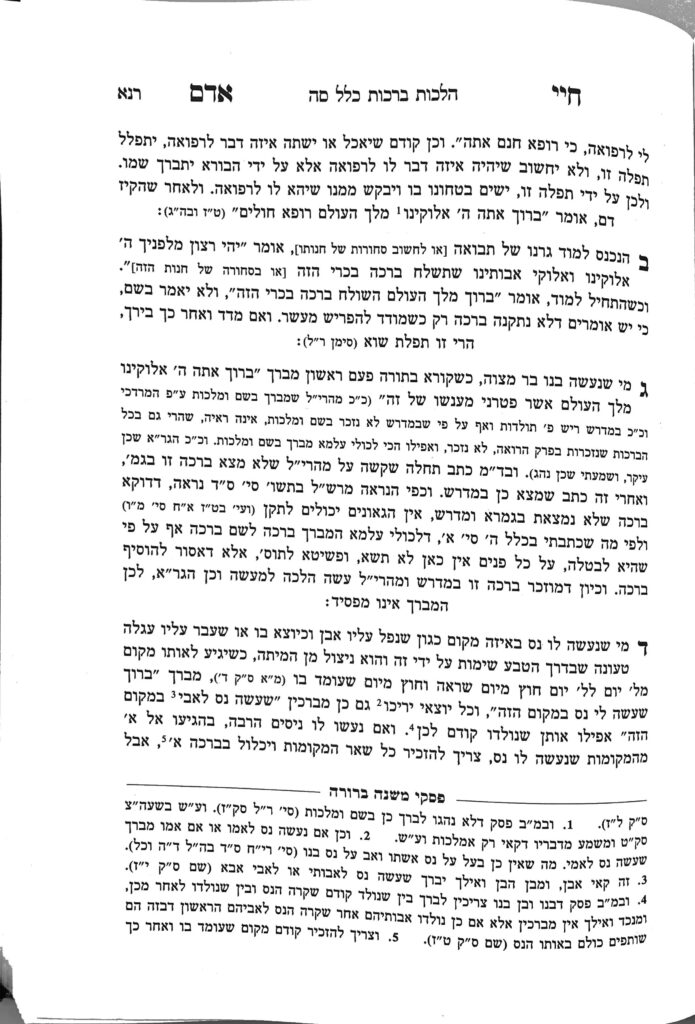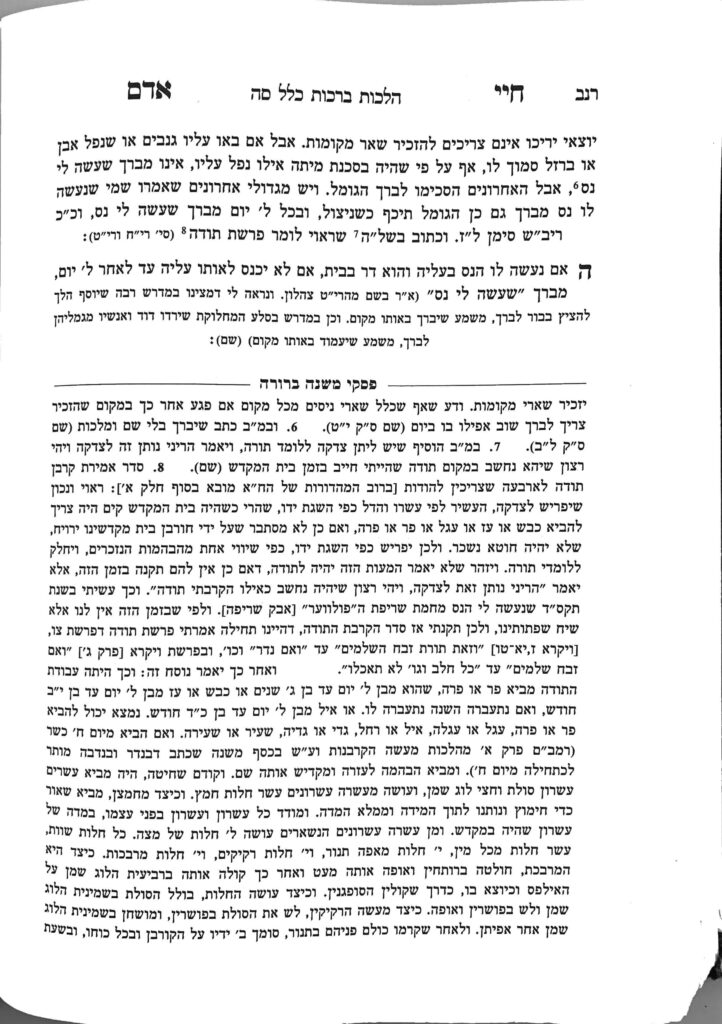We are continuing in siman 4, learning about the bracha of sheasah li neis bamako hazeh. We learned that future descendants recite the bracha for a neis which occurred to their ancestor. For children reciting the bracha on a neis which occurred to their father, they recite sheasah l’avi neis bamako hazeh. Subsequent descendants would recite sheasah la’avosai. If the neis occurred to a female ancestor, children recite l’imi, and subsequent descendants would recite la’avosai.
If one experiences multiple nissim in their lifetime, when they return to one of the places in which a neis occurred, they should mention all of the nissim which took place in their life and not just the one which took place at that location. They would recite “sheasah neis bamako hazeh u’ve____”, reciting the current location first, and then adding other locations. If one was in the other location/s within 30 days, they can still recite a bracha at the current location, and still mention both places in their bracha.
Future descendants reciting the bracha due to a miracle which occurred to their ancestor only recite the bracha on the place which they are visiting.
The Chayei Adam returns to the discussion of the definition of a neis. He writes that if one was attacked by robbers, or a large beam of metal fell near them, one does not recite the bracha. Although they were close to being in danger, one must have actually been in life-threatening danger in order to recite the bracha. As we learned previously (shiur 1250), according to the Chayei Adam, one recites the bracha due to the extraordinary nature of the life-threatening event. In these cases, since a life-threatening event did not actually occur to that person, they do not recite the bracha.
The Mishnah Berurah suggests that one may recite the bracha without Hashem’s name.
The Chayei Adam points out that in such a situation, one would recite hagomel, as the parameters of hagomel are different than the parameters of sheasah li neis.
The poskim point out that while hagomel is recited on the present, so, technically, one would recite hagomel immediately following an event which requires it, sheasah li neis is recited on the past, so one would not recite it immediately following an event, but only upon a future visit to the site of the neis.
Summary
- If one experiences multiple nissim in their lifetime, when they return to one of those places and recite a bracha, they include the other places in their bracha as well.
- Future descendants only recite the bracha for the place which they are currently visiting.
- The bracha is recited with Hashem’s name when the nature of the neis was a salvation from an event which one would not survive under ordinary circumstances, irrelevant of the nature of the salvation.
- If the event does not meet this criteria, one may recite the bracha without Hashem’s name.




